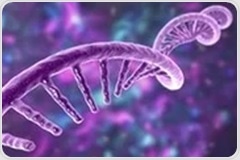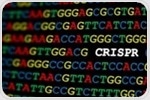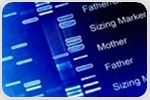
|
|
|
| |

|
|
| |
The latest Genetics news from News Medical |
|
|
|
 | | |
 Unlocking RNA Potential: From Linear to Circular Unlocking RNA Potential: From Linear to Circular
Messenger RNA is more than a genetic courier—it’s a versatile tool transforming modern biology. From traditional linear mRNA to emerging circular and self-amplifying formats, each design offers unique stability, expression, and therapeutic potential. Explore how advances in synthesis and delivery systems are shaping the next era of RNA research.
| |
|
|
| |  | | |  This study shows CRISPR-Cas9 modifications to the TcNPR3 gene in cacao reduce Phytophthora susceptibility, supporting eco-friendly agricultural practices. This study shows CRISPR-Cas9 modifications to the TcNPR3 gene in cacao reduce Phytophthora susceptibility, supporting eco-friendly agricultural practices. | | | | |  Scientists conducted a multiomics study of the world’s oldest verified person (117 years), uncovering protective genetic, immune, metabolic, microbiome, and epigenetic traits that supported her exceptional longevity. These findings highlight how aging and disease may, under rare circumstances, be decoupled. Scientists conducted a multiomics study of the world’s oldest verified person (117 years), uncovering protective genetic, immune, metabolic, microbiome, and epigenetic traits that supported her exceptional longevity. These findings highlight how aging and disease may, under rare circumstances, be decoupled. | | | | |  Researchers uncovered 53 genetic loci linked to quantitative ability, distinguishing it from general intelligence and non-cognitive skills. The study highlights brain pathways in axon guidance, synaptic signaling, and mRNA splicing as biological underpinnings of math-related ability. Researchers uncovered 53 genetic loci linked to quantitative ability, distinguishing it from general intelligence and non-cognitive skills. The study highlights brain pathways in axon guidance, synaptic signaling, and mRNA splicing as biological underpinnings of math-related ability. | | | | |  A new randomized study finds that a lab test that reads tumor genes can identify which patients with recurrent prostate cancer will benefit from adding hormone therapy to radiation after surgery - the first predictive biomarker in this setting. A new randomized study finds that a lab test that reads tumor genes can identify which patients with recurrent prostate cancer will benefit from adding hormone therapy to radiation after surgery - the first predictive biomarker in this setting. | | | | |  Natural systems such as CRISPR-associated transposons (CASTs) offer a targetable, one-step way to edit genomes. Natural systems such as CRISPR-associated transposons (CASTs) offer a targetable, one-step way to edit genomes. | | | | | __638949058354865863_multisizecolor_150_custom.jpg) Tagomics Ltd., a pioneering biomarker discovery and diagnostics company, today announced the publication of a peer-reviewed study in Cell Reports Methods, underpinning its epigenomic profiling technology, Active-Seq, the basis of Tagomics' Activace™ platform. Tagomics Ltd., a pioneering biomarker discovery and diagnostics company, today announced the publication of a peer-reviewed study in Cell Reports Methods, underpinning its epigenomic profiling technology, Active-Seq, the basis of Tagomics' Activace™ platform. | | | | |  Genes are the building blocks of life, and the genetic code provides the instructions for the complex processes that make organisms function. Genes are the building blocks of life, and the genetic code provides the instructions for the complex processes that make organisms function. | |
|
|
|  | | | How would you rate today's newsletter?
| |
|
|
|  | | |
 |
Stay updated with the latest in health and medical news! Follow News‑Medical.net on Google News for real‑time updates. Click here to follow us now. |
| |
|
|
|
|
|
|
|